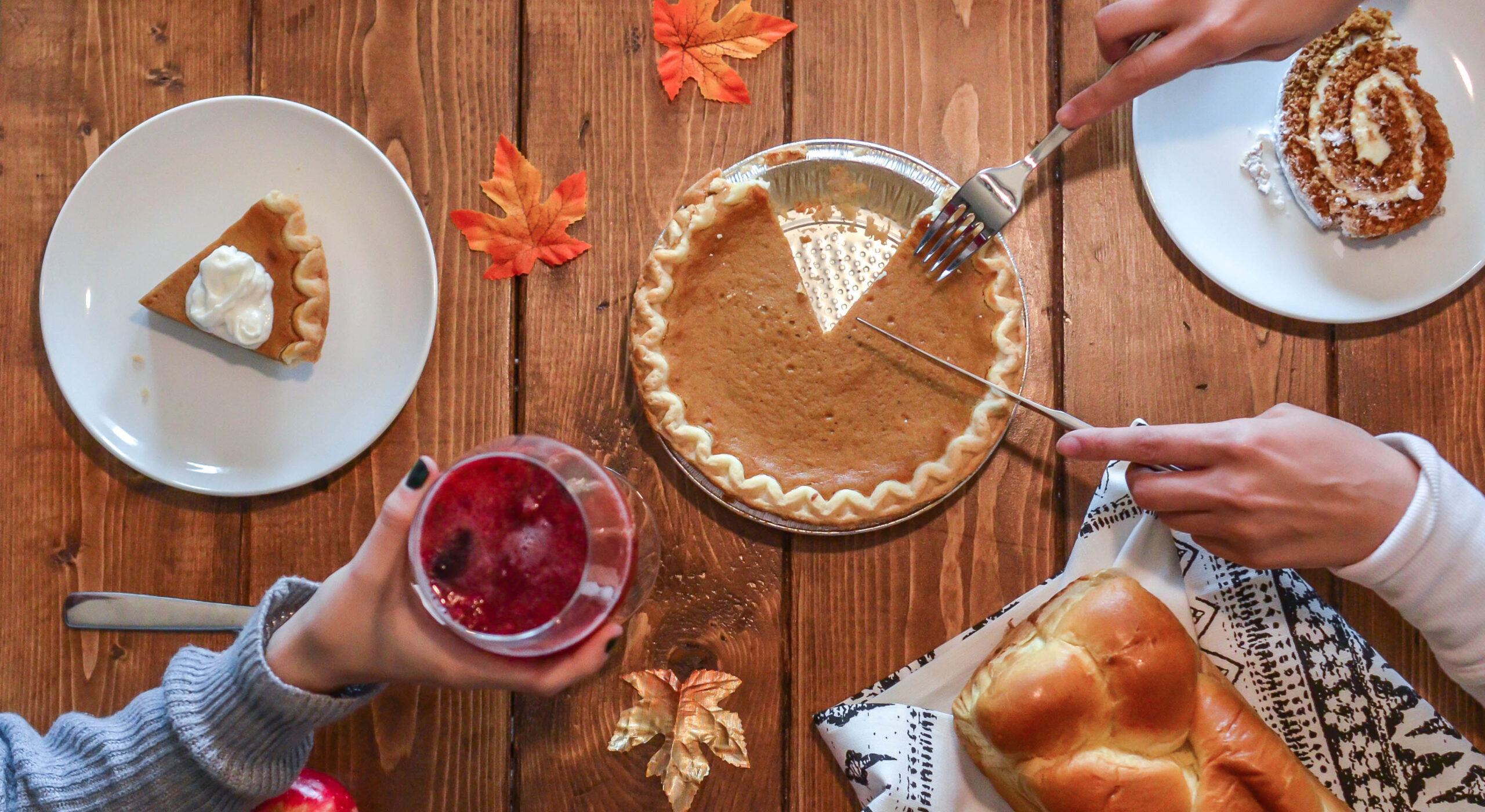Halloween is about to happen!! (Personally, my favorite holiday; cue Spooky Scary Skeletons Dance Remix) But alas, as soon as November 1st hits, Mariah Carey and Michael Buble wake up from their 10-month-long hibernations to remind us that Christmas is basically already tomorrow. So, I’ve compiled a list of tips to hopefully help couples survive and thrive this holiday season with their family.
This blog is particularly targeted to couples, parents, and other varieties of family units that are trying to prep for seeing extended family. For other wonderful blogs on the holidays, I encourage you to explore our archives https://austinfamilycounseling.com/category/holidays/
Tip #1: Boundaries
Boundaries are one of my favorite things in general, but especially when it comes to preparing for big events, and double especially when it comes to planning events with extended family.
Tip 1A: Boundaries about deciding when and where to celebrate the holidays
As families grow up, folks tend to gravitate less and less to their home of origin, and more and more to their created, adult home. I hear the argument year after year about some family member trying to organize everyone to come to their house for Thanksgiving, but someone else already made plans to be elsewhere. Folks get upset, feelings are hurt, and malicious words are said. It’s hard when adult siblings have their own significant others and we try to balance family traditions of multiple families! I give you permission to have boundaries! Either your own boundaries as an individual (like, if you’re arguing with your partner about where to feast), or boundaries as a united couple (like, “Mom we spent Christmas with y’all last year and already told you we’re going to Peter’s parents’ for Christmas this year! We can come over a few days later to exchange gifts.”). Especially if you have young kids, feel free to use them as your excuse to simplify the holiday hassles, and explore your own family traditions (“Aunt May, it’s just too hard to leave the house for Thanksgiving with our little ones this year. So sorry that we’ll miss out on your pickle-jello-surprise…”). Pro tip: if you’re going to spend multiple days out of town with a family-of-origin, it’s okay to plan to stay in a hotel or bnb, NOT in your partner’s childhood bedroom.
Tip 1B: Boundaries about conversation topics that are off-limits
If your families are anything like most, there’s that one contrarian that loves to start drama. Whether it’s conspiracy theories, politics, or “when do y’all plan on having (more) kids??”, you’re allowed to have boundaries and nix any conversations that you don’t want to have. This is a tricky one, since we can’t always predict what topics will be brought up by others. Still, we can have intentional conversations with our partner before heading to the in-laws’ house, at least to plan for the predictable topics (“Hey babe, can you deflect any questions that your brother has about my job? It’s the last thing I want to think about during my only break this year”) or (“When Uncle Ben starts on his alien rant, can you pretend that you need me in another room?”)
Tip 1C: Boundaries around alcohol and/or other substances
Maybe the boundary is that you can’t talk to your Father-in-Law until after he’s had his second drink. Maybe the boundary is that you don’t want to drink anything because “you know how you get” when intoxicated. Maybe you can’t handle your family until you’ve gone out to the car for a smoke. Whatever the boundary is, my hope would be that you do it intentionally. Since you’re reading this, you can start to think now about how you’d like to handle yourself, and how you’d ideally like to interact with others, when it comes to substance consumption. Have a talk with your partner about what your thoughts are, what their thoughts are, and find a way to try to get your needs met with this boundary. Or hey, maybe it’s not a boundary that you need at all! In which case, keep reading ahead.
Tip 1D: Boundaries about your exit strategies
Whether it’s a plan for how to end the night, how to cut someone off when they go off the conversation deep-end, or what to do when the indigestion sets in, it’s usually a good idea to have an exit strategy. I encourage you and your partner to talk ahead of time to figure out what amount of time you’d like to spend with the family, maximum, or a hard stop on what time y’all want to leave the get-together. If your family isn’t great about respecting boundaries, it may be necessary to pre-plan excuses like “we have a big thing in the morning, so we’d better get going now!” or “our dog usually gets antsy when we’ve been gone more than a few hours. We’re gonna head home for his sake.” A cuter excuse could be “we’ve gotta head out before it gets too dark, I wanted to show Gwen the park we used to go to when I was growing up!” Or if you’re feeling brave or perhaps have a more respectful family, just say the truth: “hey, my battery for family time is worn out and I’m gonna head home.”
Tip 1E: Boundaries surrounding food
This one might not be relevant for everyone, so feel free to skip ahead if this one doesn’t suit you! Food is usually a BIG centerpiece around Thanksgiving/Christmas/Hanukkah, so this rule is for the folks who are trying to be more mindful of their intake of food. From “watching out for my high cholesterol” to “hot girl IBS”, there are a myriad of reasons why one may be looking out for what they eat. It may be helpful to lean on your partner to help with your boundaries around food. It could be something as simple as “don’t give me your leftovers because you know I can’t help myself but eat them” or “make sure I don’t eat too many latkes this year, last year all the fried food sent me over the edge!” If the necessity is more involved like “my doctor told me I can only handle X helpings of Y and not to add any salt to my dish,” you may need to even involve other family members who bring/prepare food. You are allowed to have needs, and if your family isn’t respectful of that, you might need to jumpstart Tip 1D.
Tip #2: Finances
As ABBA once said: Money, money, money. As Pink Floyd once said: Money, it’s a gas. There is usually an expectation around the holidays that we are supposed to spend money on gifts, food, experiences, and so much more. Whether y’all pinch pennies or have millions, it is often a good idea to discuss a holiday budget in advance of the actual events. This may need to be a discussion with the greater family, or it could be an internal agreement between the two of you. If you need to, you can sit down with your bank accounts open and figure out what you can spare for the month. If that seems to hard or too emotional, feel free to jump to Tip #5! And just because y’all agree on budgets doesn’t mean that the surprise around the gifts themselves are gone! Just agree that if someone is getting a BIG surprise (car, designer handbag, trip to Disney World, etc), you’ve budgeted all the money necessary so that there is at least a semblance of consent discussed. Budgeting ideas that have worked well for me in the past are to 1) create a total spending limit and divvy that up among what I’ll spend on my whole family, as well as 2) buying gifts a month or two early so that they don’t all fall on the same paycheck.
Tip #3: Self-compassion
All of our routines are thrown off around the holidays! Kids and adults alike all share in the frustration of not having dependability around routines and expectations! Since we can’t guarantee that we can stick to our routines (it is often simply out of our control), what we can do is focus on what we CAN control (i.e. ourselves). Speak to yourself with kindness, knowing that you are just a small human in this vast expanse of chaos. Dr. Kristen Neff, one of my favorite mentors in relation to self-compassion, has a VAST expanse of resources on her website related to how to implement this tip. Just remember: you are important, you are worthy of love, you are worthy of calm, and you deserve to get your needs met this holiday season.
Tip #4: Coping skills
Lean on your best coping skills throughout the holiday season! Just as self-compassion is important, so are the other coping tools you have on your toolbelt! Some examples of coping skills that you can use are 1) deep breathing, 2) using distractions and escapism (hello, Tiktok!), 3) count all the blue things in this room, then count all the red, etc. etc. etc. There are WAY too many options for me to list here, so I encourage you to search the internet for coping skill ideas, as well as talking with your therapist.
Tip #5: Talk to a therapist!
The holidays can be hard!!! Dealing with family can be hard!!! It is extremely normal to need some extra help and support around this time. You are always welcome to reach out to schedule an appointment, whether it’s before, during, or after the holiday season. I’d love to hear from you and see if we could problem-solve this holiday season together! Feel free to reach out here.












